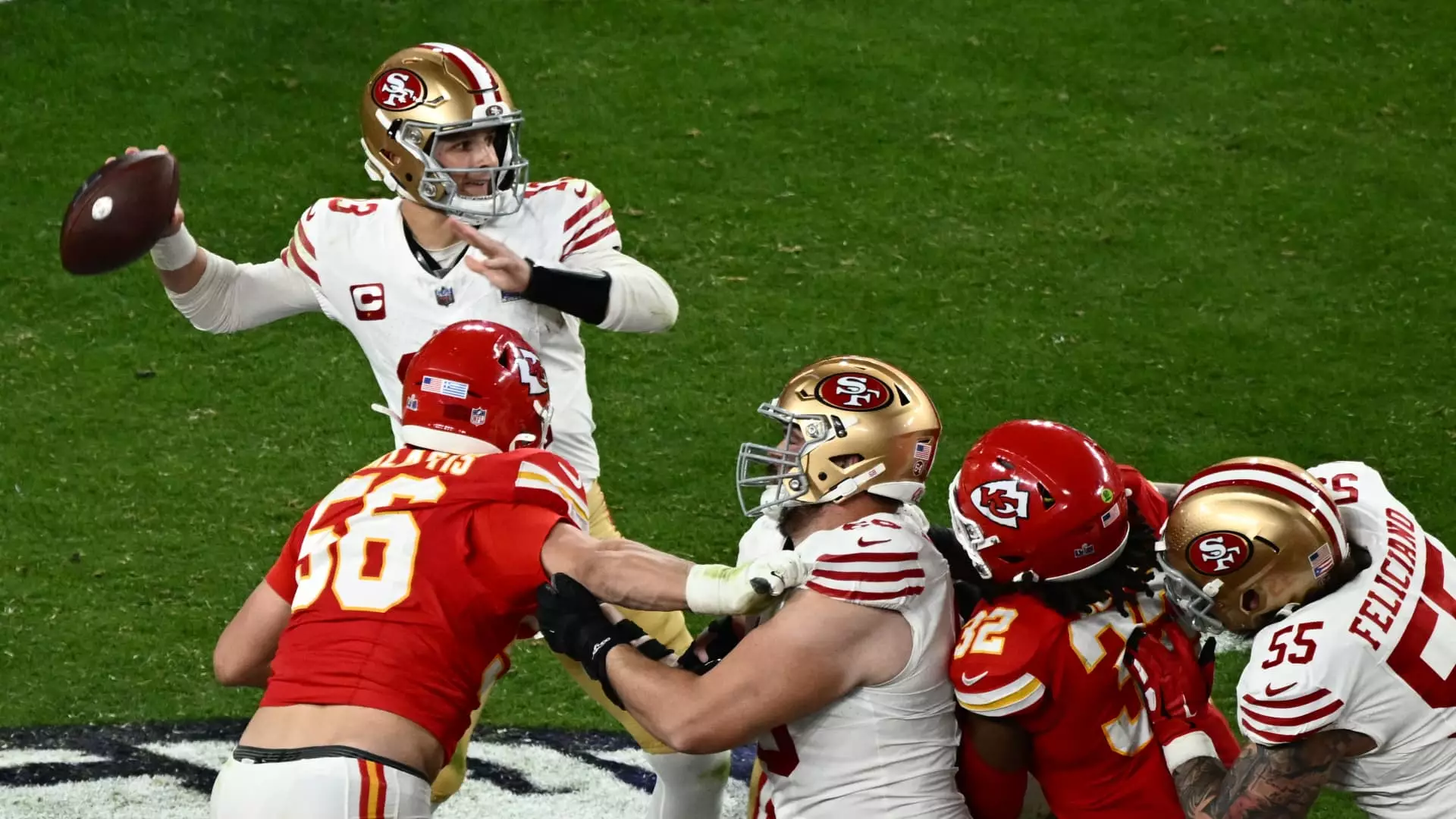In the realm of professional sports, the evaluation of talent has historically been a blend of intuition, traditional scouting, and statistical analysis. However, the success story of Brock Purdy, the last pick in the 2022 NFL draft, demonstrates the inadequacies of traditional assessment methods. As the quarterback for the San Francisco 49ers, Purdy’s journey underlines a pivotal transition—one that organizations like the 49ers are keen to navigate through advanced technology like artificial intelligence (AI).
Once considered an afterthought, Brock Purdy emerged as a standout player, leading his team to the Super Bowl. His ascent raises critical questions regarding the efficacy of conventional scouting practices. How is it possible that an athlete with such undeniable talent could slip to the very end of the NFL draft? The answer lies in a flawed system that often overlooks not just numbers but the intangible qualities that make a great player. The fact that Purdy was evaluated based on metrics that didn’t capture his unique skill set signals a broader systemic issue within player assessment frameworks.
Al Guido, the president of the 49ers, believes that the future of talent identification rests in integrating advanced analytics with traditional scouting methods. His ambition isn’t limited to American football; he sees value in this approach for soccer as well, particularly given the sport’s global nature. The challenge in soccer is compounded by a myriad of leagues and varying levels of competition, making it difficult to gauge talent accurately. Guido’s insight—that a player could emerge from virtually anywhere to secure a spot on a major league team—highlights the necessity for a more sophisticated and nuanced evaluation system.
Guido’s aspiration is to leverage AI to transform how teams evaluate players. By analyzing vast datasets and employing predictive modeling, clubs can uncover talent that traditional methods might miss. Advanced statistical metrics in conjunction with AI can offer insights into player potential that static observation simply cannot provide. This shift towards a more data-driven approach could revolutionize the scouting landscape, ensuring that talent is recognized regardless of geography or league status.
The Future of Player Evaluation: A Dual Approach
In the eyes of the 49ers’ management, the key to effective player evaluation lies in blending tradition with modernity. By marrying the nuanced insights of veteran scouts with the rigorous, data-centric approach offered by AI, the organization aims to refine its talent acquisition strategy significantly. As Brock Purdy prepares for a potential contract extension, his experience serves as a testament to the need for better methodologies in the evaluation processes—an evolution that may well reshape the future of professional sports scouting as we know it.
The narratives surrounding players like Brock Purdy underline the critical and urgent need for change in how talent is assessed. Organizations that adapt to incorporate cutting-edge technology alongside traditional wisdom will not only enhance their scouting approaches but also solidify their competitive advantage in the ever-evolving landscape of professional sports.

